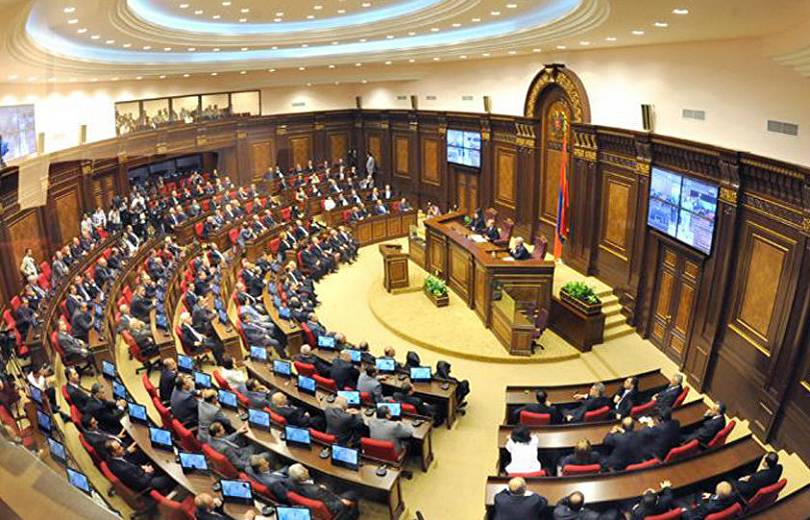By Mark Dovich
Last week, Armenia’s legislature, the National Assembly, passed a controversial set of amendments to the Civil Code that substantially raise the maximum damages for insult and defamation. The bill, introduced by Vice Speaker Alen Simonyan, a close ally of Prime Minister Nikol Pashinyan, raises the maximum penalty for defamation to 6 million drams (about $11,400) from 2 million drams ($3,800), while increasing the penalty for insult to 3 million drams ($5,500) from 1 million drams ($1,900). Seventy-six lawmakers voted in favor of the changes, while 40 voted against, and 3 abstained.
Simonyan has argued that the amendments “will provide additional guarantees for individuals to protect the dignity or business reputation of not only an individual, but also the media, from false and offensive attacks.” Nonetheless, the changes have been roundly criticized by domestic and international press freedom advocates alike, who have expressed fears that the amendments may have a chilling effect on press freedom in the country.
Prior to the introduction of the new changes, Armenian courts rarely sought maximum damages in libel suits. Moreover, in past cases, Armenian judges have ruled that media organizations convicted of insult or defamation are not to be charged the maximum penalty under the law, but rather a proportionate amount, “so as not to interfere with the normal operation of the media.”
This is precisely why many press freedom advocates have decried the amendments. Very few media organizations in Armenia, if any, could afford to pay the new maximum penalties for insult or defamation and continue their operations.
Under Armenian law, insult is defined as “a public expression made with the aim of defaming honor, dignity, or business reputation through speech, image, sound, sign, or in any other way,” while libel or defamation is legally considered “the public presentation of such factual information about a person (statement of fact) that is untrue and discredits their honor, dignity, or business reputation.” Precedent set by Armenia’s Court of Cassation holds that the presence of a third person allows a potential libelous statement to be considered public.
Following the passage of the amendments, a group of Armenian press freedom organizations issued a joint public statement urging President Armen Sarkissian not to sign the bill into law and to send it instead to the Constitutional Court for further review. The Union of Journalists of Armenia have called on Human Rights Defender Arman Tatoyan to challenge the amendments’ constitutionality in court.
Meanwhile, Freedom House, the prominent U.S.-based democracy-focused organization, released a strongly worded statement warning that the changes “will stifle free expression and threaten the financial viability of media outlets in the country.” The organization has called on “the Armenian authorities to take the concerns of civil society and media organizations seriously, and strike down this legislation.”
















